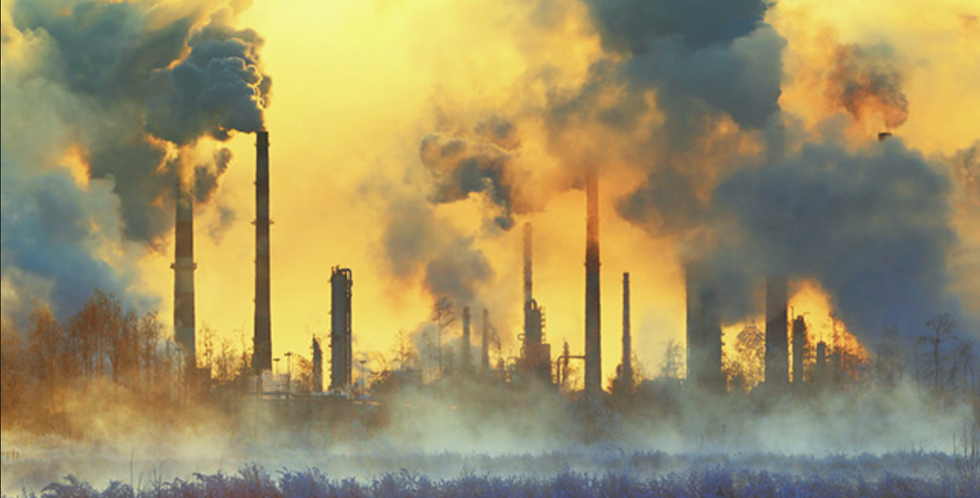In recent years, it has become almost trendy to live more sustainably by doing things like shopping at farmer's markets, bringing your own bags to the grocery store, or buying a set of reusable straws. As much as I believe that being eco-friendly is a great trend and everyone should try to reduce, reuse, and recycle, it's easy to forget that there is a bigger (global) picture that we need to focus on as well.
These fairly simple actions make us feel like we're doing our part in reducing our personal environmental impact, but we need to be constantly re-evaluating how much of a difference we're really making.
To preface, I use a bamboo toothbrush and avoid straws and preach good recycling habits because it makes me feel like I'm at least trying to reduce my own carbon footprint. I think every person on this planet has the ability to positively (and negatively) impact the environment because I don't think we'll be able to solve climate change related issues until we unite as a global community with a common goal.
Lately however, I've been thinking about how much of a difference my actions are really making because I'm just one person in a world of 7 billion. Now this isn't to say that you should stop trying to practice sustainable habits, if anything you're setting an example for what more people should be doing.
The problem here lies in the fact that focusing too much on our small actions is distracting us from the real climate change culprits: corporations.
The top 20 largest global oil companies are responsible for 35% of the world's emissions. Think about that... 20 corporations, aka 20 CEOs, are responsible for 1/3 of the greenhouse gases that are destroying the planet. These 20 CEOs, 20 individuals, have more power to reduce emissions than billions of other people combined.
These numbers don't even include emissions from factory farms, global meat producers, or the fashion industry (the other businesses responsible for our planet's downfall).
And yet we are made to feel that saving the planet is dependent on our small lifestyle changes.
As consumers, we are constantly subjected to commercials and ads that promote the "green" options: products that might literally be in green-colored packaging, have a leaf on them, claim to be compostable, or to use sustainable materials without giving any evidence as to how they are environmentally friendly. This marketing concept deployed by corporations, also known as greenwashing, leads us to think that we are making a smart environmental decision by choosing their product when the reality is that we could be choosing to use altogether different products that are actually sustainable and not just made to look like it.
Take paper towels as an example. We might see ads for paper towels that are biodegradable or made from recycled materials which, to someone trying to live sustainably, seems like a pretty tempting purchase. What we don't see in that ad is the idea that we could instead start using dish towels, rags, or sponges to clean up our messes and ditch paper towels entirely!
Corporations want us to buy into the idea that choosing their products and continuing to shop at their stores will help us live more eco-friendly lives in order to hide the fact that they are the ones causing the most damage to our planet. The rich and powerful people in charge of these corporations need to be held responsible for their decision to continuously put money before human and natural life.
Consider this your reminder not to lose sight of the bigger picture, educate yourself on corporate practices, and get creative with sustainable alternatives.
Keep shopping local, recycle your plastics, turn the sink off when you're brushing your teeth, but more importantly, advocate for environmental policy changes, vote for representatives who have green interests, boycott corporations (if you can), and remember that we all have power as people, as activists, and as consumers.
To learn more about the harmful effects that corporations (and capitalism) have on the earth, consider reading/watching:
- The Corporation (documentary)
- Minimalism (documentary)
- Cowspiracy (documentary)
- A Foodie's Guide to Capitalism by Judy Guthman
- The World According to Monsanto by Marie-Monique Robin




































